
Exodus is the ninth studio album by Jamaican reggae band Bob Marley and the Wailers, first released in June 1977 through Island Records, following Rastaman Vibration (1976). The album's production has been characterized as laid-back with pulsating bass beats and an emphasis on piano, trumpet and guitar. Unlike previous albums from the band, Exodus thematically moves away from cryptic story-telling; instead it revolves around themes of change, religious politics, and sexuality. The album is split into two halves: the first half revolves around religious politics, while the second half is focused on themes of making love and keeping faith.
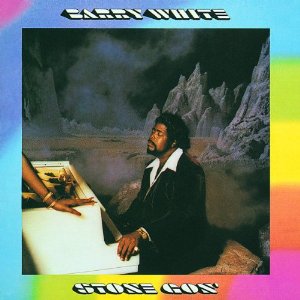
Stone Gon' is the second studio album by American R&B singer Barry White, released in 1973 on the 20th Century label. The album was arranged by Barry White and Gene Page.

Sticky Fingers is the ninth studio album by the English rock band the Rolling Stones. It was released on 23 April 1971 on the Rolling Stones' new label, Rolling Stones Records. The Rolling Stones had been contracted by Decca Records and London Records in the UK and the US since 1963. On this album, Mick Taylor made his second full-length appearance on a Rolling Stones album. It was the first studio album without Brian Jones, who died two years earlier. The original cover artwork, conceived by Andy Warhol and photographed and designed by members of his art collective, the Factory, showed a picture of a man in tight jeans, and had a working zip that opened to reveal underwear fabric. The cover was expensive to produce and damaged the vinyl record, so the size of the zipper adjustment was made by John Kosh at ABKCO records. Later re-issues featured just the outer photograph of the jeans.

Greatest Hits is a greatest hits album by English rock band the Cure. It was first released in Japan on 7 November 2001, before being released in the UK and Europe on 12 November and then in the US the day after. The band's relationship with longtime label Fiction Records came to a close, and the Cure were obliged to release one final album for the label. Lead singer Robert Smith agreed to release a greatest hits album under the condition that he could choose the tracks himself. The band also recorded a special studio album released as a bonus disc to some versions of the album. The disc, titled Acoustic Hits, consists of the eighteen songs from the North American release re-recorded using acoustic instruments.

Greatest Hits is a greatest hits album by the American rock band ZZ Top, released in 1992.

Greatest Hits is a compilation album by Tom Petty and the Heartbreakers, released on November 16, 1993. It is Petty's best-selling album to date and was certified 12× Platinum by the RIAA on April 28, 2015. The single "Mary Jane's Last Dance" became one of Petty's most popular songs, reaching No. 14 on the Billboard Hot 100 and No. 1 on the Billboard Mainstream Rock Tracks chart. The other new song on the album is a cover of the Thunderclap Newman hit "Something in the Air". The album contains no songs from 1987's Let Me Up . However, three songs from Petty's 1989 solo album Full Moon Fever were included.

Arrival is the fourth studio album by the Swedish pop group ABBA. It was originally released in Sweden on 11 October 1976 by Polar Records. It became one of ABBA's most successful albums to date, producing three of their biggest hits: "Dancing Queen", "Money, Money, Money" and "Knowing Me, Knowing You". The track "Fernando", which had been recently released as a single in March 1976, was included on the Australian and New Zealand versions of the album. Arrival was the best-selling album of 1977 in the United Kingdom and was certified gold by the Recording Industry Association of America.
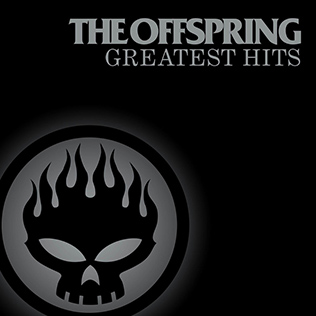
Greatest Hits is a 2005 compilation album by the American punk rock band The Offspring, compiling hit singles from five of their first seven studio albums along with the previously unreleased songs "Can't Repeat" and "Next to You", the latter a cover version of The Police song included as a hidden track at the end of the album. Greatest Hits peaked at no. 8 on the Billboard 200, with 70,000 copies sold in its first week of release, and has been certified Platinum by the Recording Industry Association of America.

Vault: Def Leppard Greatest Hits (1980–1995) is the first greatest hits album and the second compilation album by English hard rock band Def Leppard. The album was originally released in the band's home country on 23 October 1995 by Mercury Records. It was released in North America a week later on 31 October by the same label. Vault went on to be certified gold in four countries, platinum in three and multi-platinum in two. In the US, the album is currently certified 5× platinum by the RIAA, and in June 2011 it topped the five million mark in sales there. It won Metal Edge magazine's 1995 Readers' Choice Award for "Best Hits or Compilation Album."

The Ultimate Collection, aka Gold and, later, Icon 2, is a retrospective 2-disc set of Barry White's career that was released in 2000. In 2008, it was substantially re-released as part of Universal Music's Gold series with the addition of the song "Baby, We Better Try To Get It Together" and the removal of the song "Love Makin' Music".

The Greatest Hits Collection is a compilation album released by Bananarama which features their single releases and greatest hits. It was issued by London Records in 1988, eight months after the departure of group member Siobhan Fahey. The track listing differed between versions released in the United States and Canada, as well as those released throughout Europe and other territories.
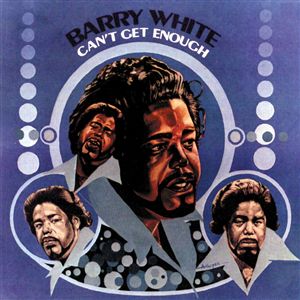
Can't Get Enough is the third studio album by American R&B/disco singer Barry White, released on August 6, 1974 by the 20th Century label.

Their Greatest Hits: The Record is the career retrospective greatest hits album by the Bee Gees, released on UTV Records and Polydor in November 2001 as HDCD. The album includes 40 tracks spanning over 35 years of music. Four of the songs were new recordings of classic Gibb compositions originally recorded by other artists, including "Emotion", "Heartbreaker", "Islands in the Stream", and "Immortality". It also features the Barry Gibb duet with Barbra Streisand, "Guilty", which originally appeared on Streisand's 1980 album of the same name. It is currently out of print and has been supplanted by another compilation, The Ultimate Bee Gees.

Greatest Hits, Vol. 1 is Rod Stewart's 1979 Warner Bros. Records best-of compilation.

Chronicle, or fully Chronicle: The 20 Greatest Hits, is a greatest hits album by the American rock band Creedence Clearwater Revival. It was released in January 1976 by Fantasy Records. The edited version of "I Heard It Through the Grapevine" featured on the album was simultaneously released as a single.

Biography: The Greatest Hits is the first greatest hits compilation album by British recording artist Lisa Stansfield. Released by Arista Records on 3 February 2003, it features seventeen tracks, hits and rare songs, including: "All Around the World", "This Is the Right Time" "Change", "All Woman", "The Real Thing" and "Never, Never Gonna Give You Up". The album, which garnered positive reviews from music critics, peaked at number three in the United Kingdom and was certified Gold.
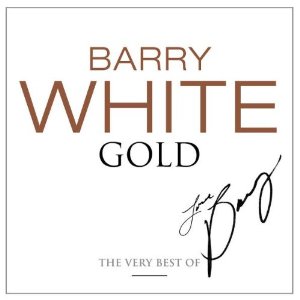
Gold: The Very Best of Barry White is a 2-CD compilation of Barry White's greatest hits. It was released in 2005.

I've Got So Much to Give is the debut studio album by American R&B singer Barry White, released on March 27, 1973, on the 20th Century label.
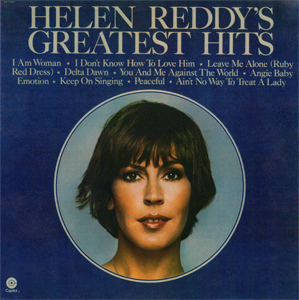
Helen Reddy's Greatest Hits is a compilation album by Australian-American pop singer Helen Reddy. It was released in 1975 by Capitol Records.

Legacy (The Very Best of David Bowie) (also known as Legacy) is a greatest hits album by English musician David Bowie, released on 11 November 2016 through Sony Music Entertainment in the US and Warner Music Group in the UK and several territories. Legacy marks Bowie’s first title to reach 400 weeks on the UK albums chart and is one of the albums which have spent the most weeks on the chart.



















